Fertilizer for peppers is essential for a bountiful harvest of these beloved and versatile plants. With so many options available, it can be overwhelming to choose the right one. In this article, we'll explore the best fertilizers for peppers and guide you in selecting the best one for your plants to thrive.
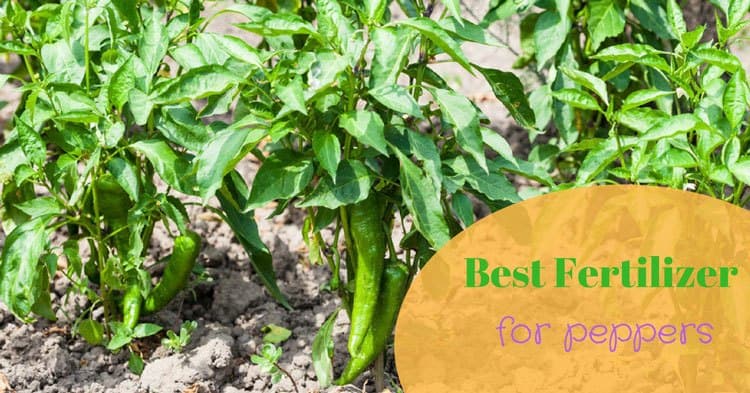
Read Next
- Why Fertilizer is Important for Pepper Plants
- Types of Fertilizers for Pepper Plants
- Synthetic Fertilizers
- Organic Fertilizers
- Slow-Release Fertilizers
- Our Suggestions: Best Fertilizers for Pepper Plants
- 1. Espoma Organic Tomato & Vegetable Plant Food
- 2. Miracle-Gro Performance Organics All-Purpose Plant Nutrition Granules
- 3. Jobe's Organics Vegetable & Tomato Fertilizer Spikes
- 4. Osmocote Flower and Vegetable Smart-Release Plant Food
- 5. Dr. Earth Organic 5 Tomato, Vegetable & Herb Fertilizer
- Table 1: Products Nutrients/Duration/Type
- Factors to Consider When Choosing a Fertilizer for Pepper Plants
- Alternative Tips Using Compost & Fertilizer
- Conclusion
- 💬 Feedback
Why Fertilizer is Important for Pepper Plants
Pepper plants, like all plants, need nutrients to grow and produce fruits. However, the soil they grow can deplete over time, making it difficult for plants to access the necessary nutrients. Adding fertilizer to the soil can help replenish the nutrients, allowing pepper plants to grow healthier and produce more abundant fruits.
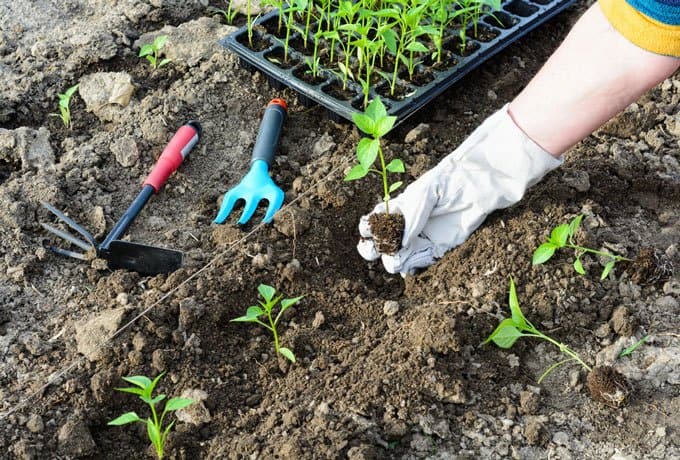


Types of Fertilizers for Pepper Plants
Three main fertilizers are available for pepper plants: synthetic, organic, and slow-release fertilizers.
Synthetic Fertilizers
Synthetic fertilizers are the most widely available type of fertilizer and are typically sold in granular or liquid form. They are made from synthetic chemicals and are designed to provide a quick boost of plant nutrients. While synthetic fertilizers can be effective, they can also harm the environment and damage beneficial soil organisms.
Organic Fertilizers
Organic fertilizers are made from natural sources, such as animal or plant-based materials. They are often slower to release nutrients than synthetic fertilizers but are less likely to cause environmental damage. Organic fertilizers can improve soil quality over time and be a good choice for organically growing peppers.
Slow-Release Fertilizers
Slow-release fertilizers are designed to release nutrients gradually over an extended period, typically several months. They can be made from synthetic or organic materials and are a good choice for those looking for a low-maintenance option.
Slow-release fertilizers are less likely to cause a nutrient burn or environmental damage, making them a good choice for gardeners looking to minimize their impact.
Our Suggestions: Best Fertilizers for Pepper Plants
1. Espoma Organic Tomato & Vegetable Plant Food
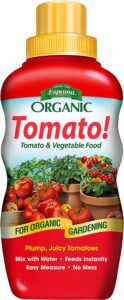


This organic fertilizer is specially formulated for tomato and vegetable plants, including peppers. It is made from natural ingredients, including feather meal, bone meal, and sulfate of potash. This slow-release fertilizer can provide nutrients for up to eight weeks, making it a convenient option for gardeners.
2. Miracle-Gro Performance Organics All-Purpose Plant Nutrition Granules
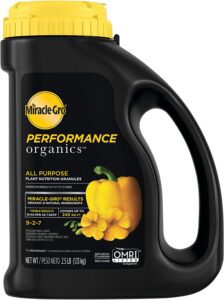


This organic fertilizer is made from natural ingredients and is designed to give plants the essential nutrients they need to thrive. It contains bone, blood, and feather meal, among other natural ingredients. It is a slow-release fertilizer and can provide nutrients for up to six months.
3. Jobe's Organics Vegetable & Tomato Fertilizer Spikes
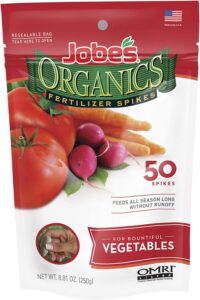


These organic fertilizer spikes are easy to use and can provide nutrients to pepper plants for up to eight weeks. They are made from natural ingredients, including feather meal and bone meal, and are designed to promote healthy plant growth and fruit production.
4. Osmocote Flower and Vegetable Smart-Release Plant Food
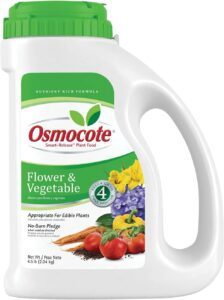


This synthetic fertilizer is a slow-release formula that can provide nutrients to pepper plants for up to four months. It contains a balanced mix of essential nutrients, including nitrogen, phosphorus, and potassium, to promote healthy growth and fruit production.
5. Dr. Earth Organic 5 Tomato, Vegetable & Herb Fertilizer
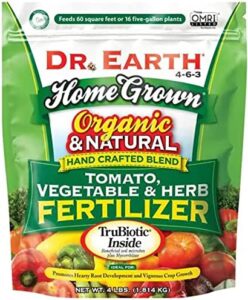


This organic fertilizer is specially formulated for vegetables, including peppers. It contains a blend of natural ingredients, including fish bone meal, kelp meal, and alfalfa meal, to provide essential nutrients to your pepper plants. This fertilizer is a slow-release formula that can provide nutrients for up to eight weeks. It is also rich in beneficial microbes that can improve soil quality over time.
Table 1: Products Nutrients/Duration/Type
| Product Name | Type | Nutrients | Duration | Organic |
|---|---|---|---|---|
| Espoma Organic Tomato & Vegetable Plant Food | Organic | Nitrogen, Phosphorus, Potassium | Up to 8 weeks | Yes |
| Miracle-Gro Performance Organics All-Purpose Plant Nutrition Granules | Organic | Nitrogen, Phosphorus, Potassium | Up to 6 months | Yes |
| Jobe's Organics Vegetable & Tomato Fertilizer Spikes | Organic | Nitrogen, Phosphorus, Potassium | Up to 8 weeks | Yes |
| Osmocote Flower and Vegetable Smart-Release Plant Food | Synthetic | Nitrogen, Phosphorus, Potassium | Up to 4 months | No |
| Dr. Earth Organic 5 Tomato, Vegetable & Herb Fertilizer | Organic | Nitrogen, Phosphorus, Potassium | Up to 8 weeks | Yes |
Factors to Consider When Choosing a Fertilizer for Pepper Plants
When selecting the best fertilizer for your pepper plants, there are a few factors to consider:
- Nutrient Requirements: Pepper plants require different nutrients at different stages of growth. Look for a fertilizer that provides the appropriate nutrients for your plant's growth stage.
- Soil Type: The soil type in your garden can affect the effectiveness of the fertilizer. Some fertilizers may be better suited for certain soil types, so consider the soil type in your garden when choosing a fertilizer.
- Environmental Impact: Synthetic fertilizers can harm the environment, so if you are looking for an eco-friendly option, consider organic or slow-release fertilizers.
- Budget: Fertilizers can vary in price, so consider your budget when choosing a fertilizer.
Alternative Tips Using Compost & Fertilizer



- Instead of treating the entire garden bed with fertilizer, mix a small handful of compost or a teaspoon of commercial fertilizer with some soil and place it into the bottom of the hole before you plant.
- Cover the fertilizer with 1-2 inches of additional soil and plant as normal. This method gives each plant a concentrated dose of nutrients while protecting the roots from coming into direct contact with the fertilizer and getting burned.
- After the peppers have been transplanted, it is good practice to side-dress them with additional fertilizer at 4 and 8 weeks. Side-dressing is applying the fertilizer without letting it touch the actual plants.
- The fertilizer should be applied 4-6 inches from the plant's base to prevent the foliage's burning. The best way to do this is to dig a one (1”) inch trench along either side of the row of peppers.
- Add the compost, manure, or balanced fertilizer you have chosen in a line through the trench. Cover the trench with soil and water the plants and ground afterward to ensure the fertilizer is absorbed.
- When the plants begin to fruit, applying more fertilizer shouldn't be necessary unless you see the plants are struggling and have poor foliage growth. If poor foliage growth is problematic, apply a side dress of 10-10-10 fertilizer. The additional nitrogen will help the plants grow properly without harshly affecting the fruit.
Providing your pepper plants with the appropriate nutrients when they need them will have you picking a superb harvest. Peppers may be sensitive, but they are by no means impossible with these simple considerations.
Conclusion
Providing your pepper plants with the proper nutrients is essential for a bountiful harvest. The best fertilizer for peppers will depend on several factors, including nutrient requirements, soil type, environmental impact, and budget.
Consider these factors when selecting a fertilizer, and choose one appropriate for your plant's growth stage and soil type. With the right fertilizer, your pepper plants will produce healthy and abundant fruits that add flavor and variety to your cooking.


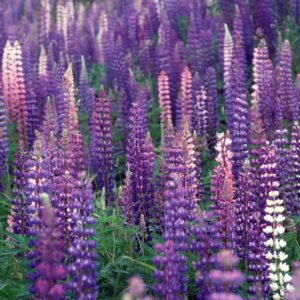
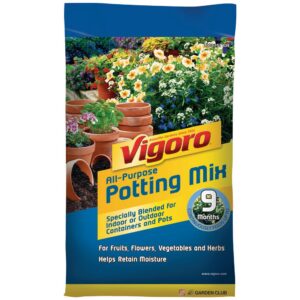
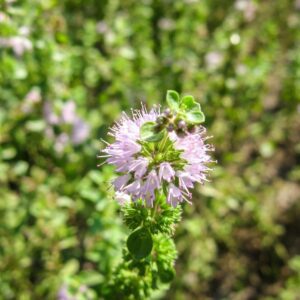
Comments
No Comments